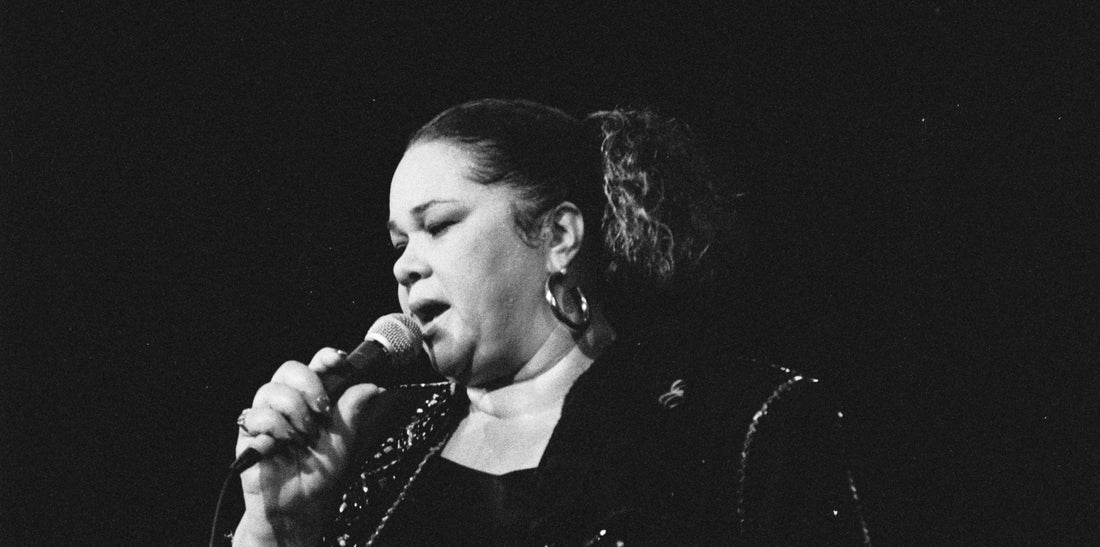Born to a single teen mom and passed around foster care, Etta James did not come into this world with many advantages. Even the choir director at her church in South-Central L.A. used to punch her in the chest when she sang as a child, a twisted way of forcing her to put more power behind her sound. James managed to use that power in her voice to conquer the R&B charts during a long career plagued by demons.
She started her recording life focused on gospel and blues, but by the time she made her third album, Etta James (1962), she had taken on enough of a pop feel to be considered R&B. Although the record was released on Argo, it had been produced by R&B pioneers Leonard and Phil Chess, with a few of the tracks previously released on their own Chess Records.
The fact that Burt Bacharach wrote something for this album is ample proof of James’ growing pop bona fides, even if it wasn’t a song that got much attention. The Bacharach/Bob Hilliard number “Waiting for Charlie to Come Home” was the B-side of the Top 40 hit “You Got a Hold on Me.”
Supported by organ and a full orchestra, James luxuriates in the emotional pain of this torch song.
James kept winning fans with those pop chops, and in 1965 Argo Records felt confident calling her new album The Queen of Soul.
The Norman Mapp number “I Worry ’Bout You” gets the full heartache treatment, complete with a gospel choir in the background. There’s a definite early-country tinge to this one, too. James shows off her voice’s impressive range of pitch and dynamics.
For the 1968 album Tell Mama, James had switched to the Cadet label, although she and Leonard Chess remained friends. It was Chess who convinced her to go to Muscle Shoals, Alabama, to record this album at FAME Studios, which was churning out hits thanks to producer Rick Hall and an in-house rhythm section known as the Swampers.
The studio delivered, helping James achieve two of her highest-charting songs: “Tell Mama” and “Security” (an Otis Redding cover). The Swampers laid out a sauntering foundation in “I’m Gonna Take What He’s Got,” supporting and interacting with James as she gives us the lyrics like a storyteller.
No one had any question that James could manage gospel, blues, jazz, and soul. But what about funk? Asked and answered: In 1970 she released Etta James Sings Funk. About half the album consists of songs composed by Pearl Woods, a long-time friend and collaborator.
This is Woods’ sassy song “Tighten Up Your Own Thing,” certainly the slickest arrangement on an album that didn’t sell very well. James funks up her voice with gravel and growl, and the guitar and bass are working overtime. And that frantic brass section is a riot.
A singer increasingly weakened by drug use, James surrounded herself with really strong session musicians to bolster the 1974 album Come a Little Closer. But she’s still very much present: The heavy funk beat of “Sookie Sookie” might be driven by Trevor Lawrence’s arrangements, but James is the fuel, pouring out energy through a voice now more suited to shouting than singing.
Although James continued to put out albums every year or two through the Seventies, living hard and fighting the demons eventually took their toll and shut her down. In 1980 she had no choice but to take time off to deal with her drug problem. She called her next album Seven Year Itch (1989) because that’s how long it had been since she’d last had a recording contract. Fortunately, Island Records saw fit to sign her.
With “One Night” (not related to the tune made famous by Elvis), she shows she’s still soul royalty. Her voice has grown lower and huskier, but that only increases the pathos in her delivery. The sensitive production is the work of Barry Beckett, trained at FAME Studios, who also contributes a sweet sound at the organ. Jim Horn, a standard on many James albums, deserves a special nod for his spirited baritone sax.
James was not taking her second chance for granted. Only a year later she released Stickin’ to My Guns (1990), which featured tracks by Isaac Hayes and Otis Redding. Buried among those well-known songwriters is a rarity: a song by James herself.
“The Blues Don’t Care” might not be one of the great songs of blues-rock history, but the composer reveals a lot of herself in it. And not just in the cynical lyrics analyzing the universal reach of misery in this world. It’s also the way she sings it: straightforward, simple, like she’s sharing the plainest truth she knows.
Time after Time (1995) is an album worth mentioning because it shows yet another side of James. This jazz collection draws from the American Songbook, with composers like Gershwin, Cole Porter, Sammy Cahn, and Rodgers and Hart. Although she’d certainly sung some jazz in her day, who knew she had a cabaret artist inside her all this time? Would have been interesting to see what happened if her career had gone in this direction earlier on, back in the heyday of this music.
James died in early 2012 at the age of 73, from leukemia. Only two months before that, she had released her 28th studio album, The Dreamer. Maybe she still dreamed she’d get a fair shake and her tough life would improve. As if hedging her bets, she ended the album with a blues song called “Let Me Down Easy.” No surprise that she brought it back home to her roots in the end.
But just as revealing about her personality and strength is a very surprising song choice on this last album. It’s “Welcome to the Jungle.” Yes – the Guns N’ Roses song! That’s some gumption, Etta James. She made it her own, of course. Axl Rose needn’t have bothered.



